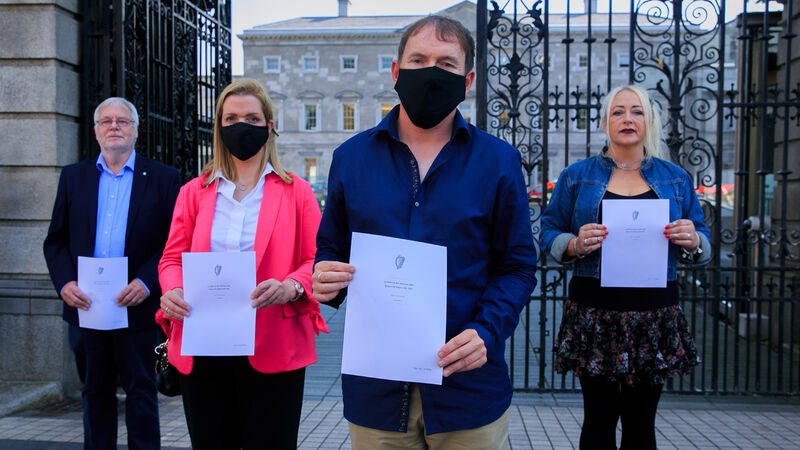Irish Examiner view: Court struck justified note of caution

At the launch of the Dying with Dignity Bill at Leinster House on September 14 were, from left: Tom Curran, Vicky Phelan, Gino Kenny and Gail O’Rorke. Picture: Gareth Chaney/Collins
Solidarity-People Before Profit TD Gino Kenny has brought a bill on assisted dying in Ireland back on the political agenda. The Dying with Dignity Bill, first introduced by former TD John Halligan, seeks to “make provision for assistance in achieving a dignified death". The name of the bill is deliberate, as, in contrast to euthanasia and assisted suicide, assisted dying would apply to terminally ill people only.
It is being supported by cervical cancer campaigner Vicky Phelan, Tom Curran, husband of Marie Fleming, and a number of politicians including Labour leader Alan Kelly. "I believe the time is now to deal with this issue, I believe as legislators we should do so," he said on launch day.













